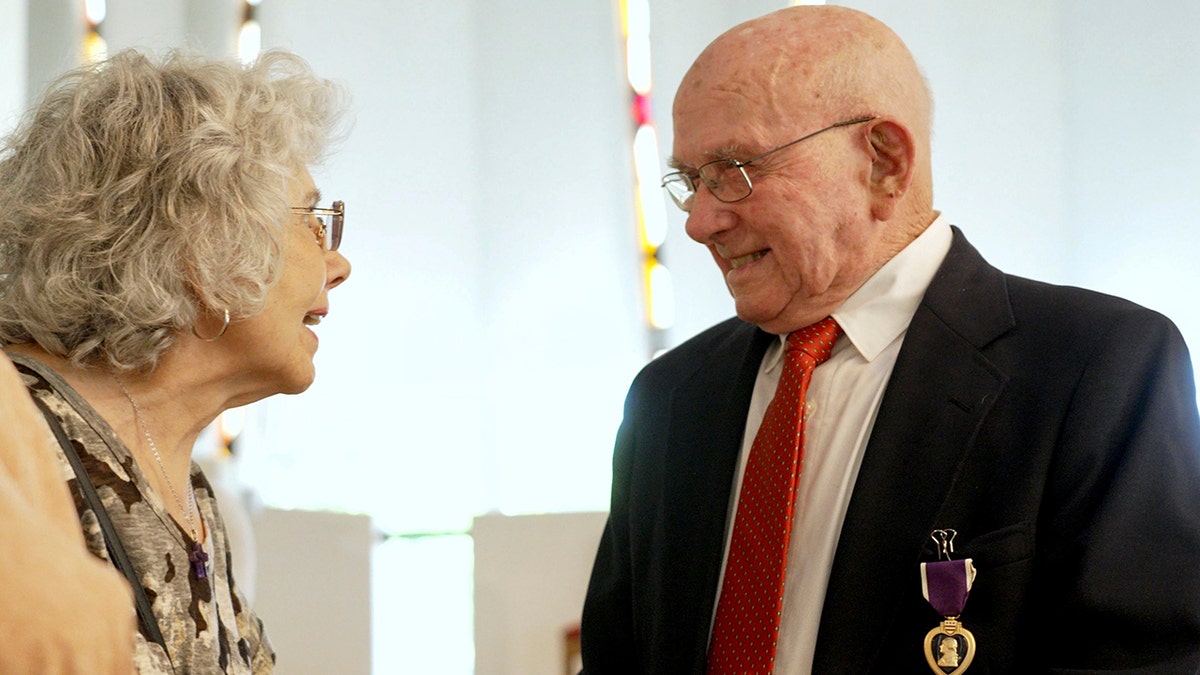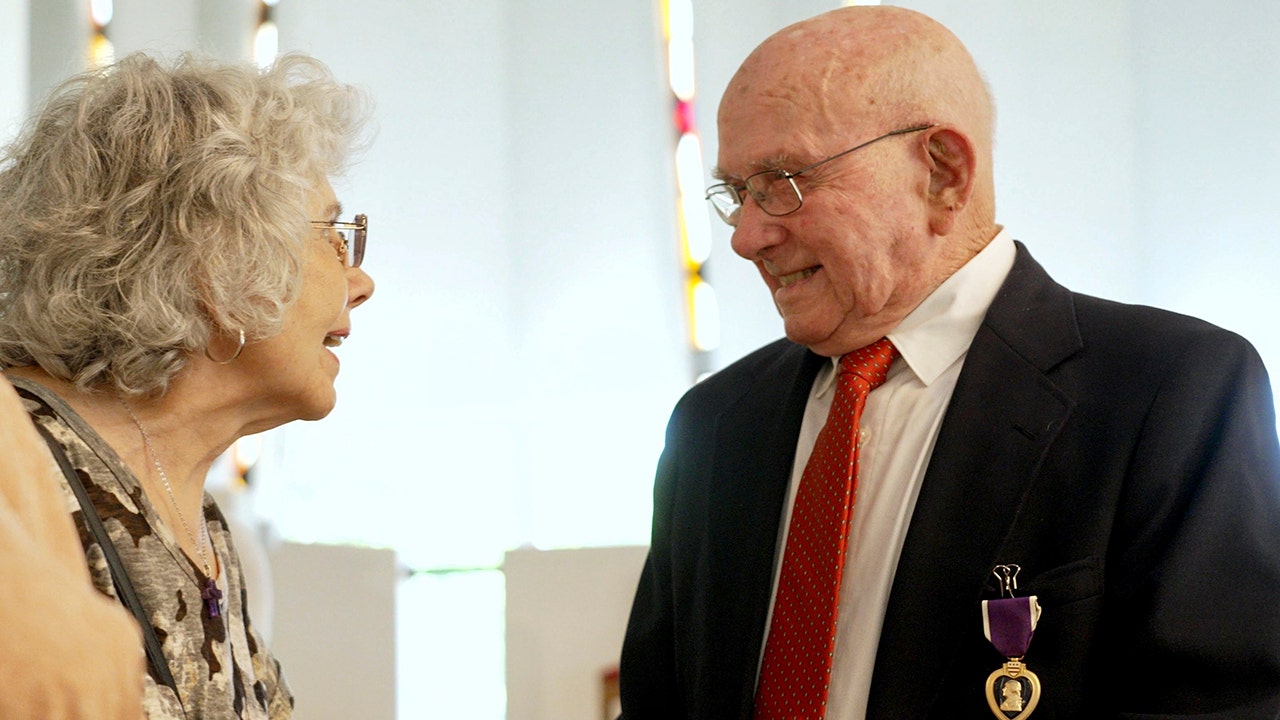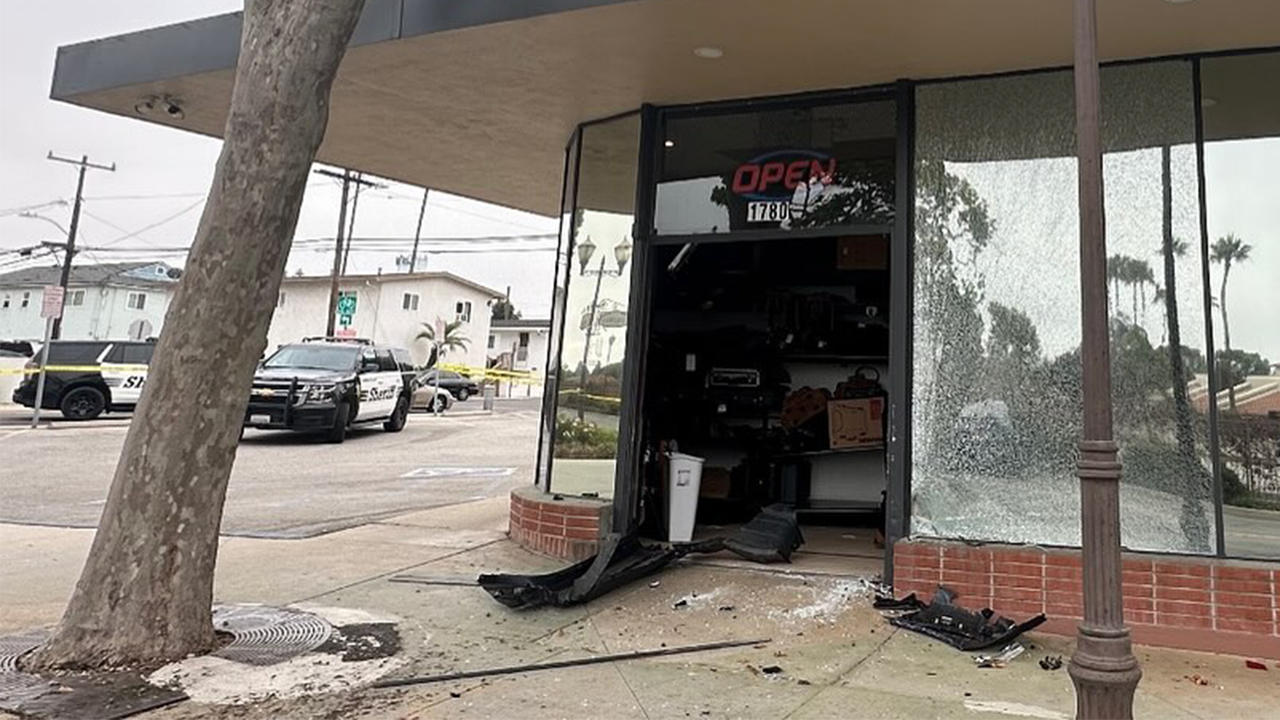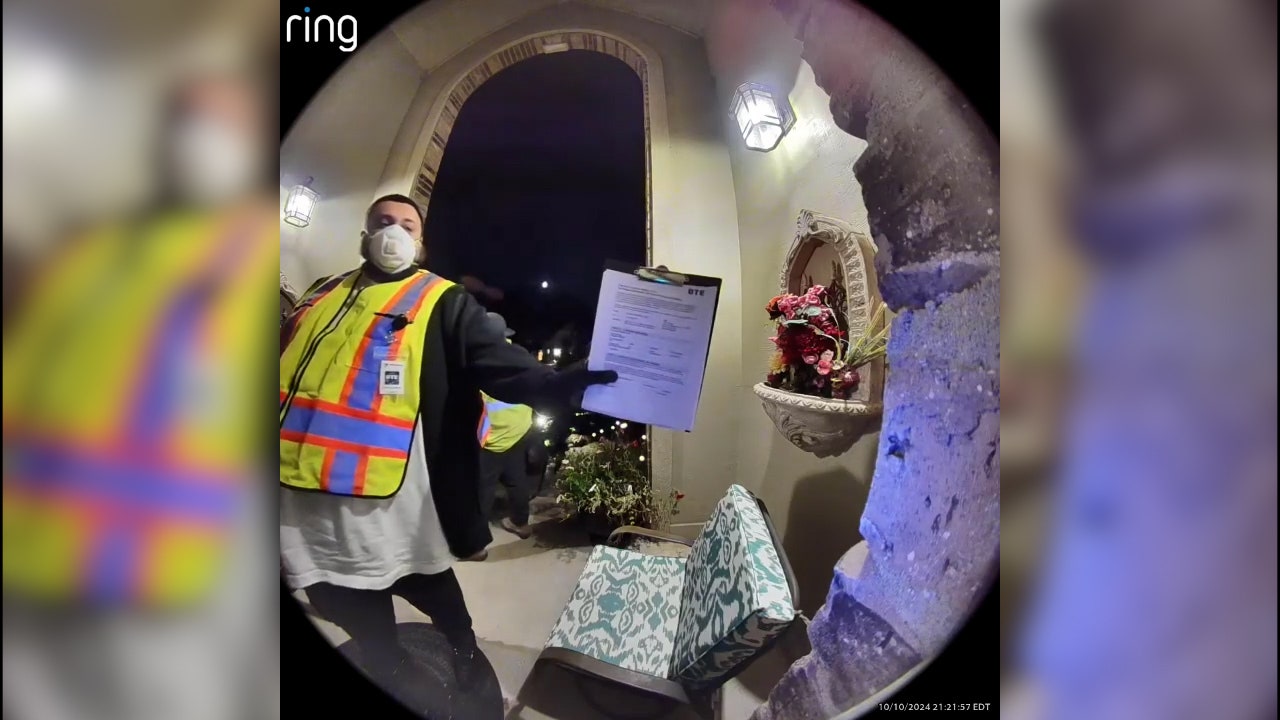After 73 years and a long fight with the U.S. Army, a Korean War veteran from Minnesota who was wounded in combat finally got his Purple Heart medal on Friday.
The Army notified Earl Meyer, 96, of St. Peter, last month that it had granted him a Purple Heart, which honors service members wounded or killed in combat. Meyer, who still has shrapnel in his thigh that continues to cause him occasional pain, had the medal pinned to his chest at a ceremony at Gustavus Adolphus College in St. Peter.
VETERANS DETAIL COMBAT STORIES ON NATIONAL PURPLE HEART DAY, SHARING IMPORTANCE OF RECOGNITION
Afterward, Meyer recalled being at an earlier ceremony for veterans when Purple Heart honorees were asked to rise so they could be honored. Now, said Meyer, “I can stand up with them guys.”
Understated and quick to deflect praise, he added: “It is nice. No doubt about that.”

Earl Meyer wears his freshly awarded Purple Heart medal for combat injuries he received while serving in the Korean War, Friday, May 17, 2024 in St. Peter, Minn. (AP Photo/Mark Vancleave)
An Army review board had rejected Meyer’s application several times due to a lack of paperwork, but it reversed course after a campaign by his three daughters and their attorney. U.S. Sen. Amy Klobuchar of Minnesota also intervened on his behalf along with the service’s top noncommissioned officer, the sergeant major of the Army. A federal judge ordered the review board to take another look.
Meyer’s case showcases the challenges for wounded veterans to get medals they’ve earned when the fog of war, the absence of records and the passage of time make it challenging to produce proof.
Klobuchar presented Meyer a certificate after the medal was pinned, while one of her former aides who worked on the case sang the national anthem.
“Our safety is what Earl fought for. Minnesota, our country and our world are better because of you, Earl,” Klobuchar told the crowd. “Thank you. And congratulations. Finally.”
Meyer’s daughter, Sandy Baker, of New Buffalo, Michigan, described combat veterans like her father, who is known to friends as “Sonny,” as “a different breed” and said he was reluctant to push for the recognition. She said he ultimately became convinced his effort would help other soldiers win overdue recognition.
“He’s excited and he’s very honored. Incredibly honored. But he said at coffee this morning, ‘I don’t know why we’re making such a big deal out of this,’” she said.
Sgt. Maj. of the Army Michael Weimer wasn’t able to attend, but he sent a latter of gratitude for Meyer’s “selfless service and dedication.” And in a handwritten addition at the bottom of the letter Weimer said: “Thank you for not giving up on us! Long overdue!”
Weimer sent Command Sgt. Major Jason Ross, from the Army National Guard, in his place. He described the grueling fighting that Meyer endured.
“He saw his close friends wounded, killed in action, and he engaged in continuous, sustained combat with the enemy and in wartime conditions for several days,” Ross said. “He believed and understood he could actually die in combat.”
Few men in Meyer’s unit who witnessed the mortar attack in 1951 survived. Only a few members of his platoon made it out unharmed. He didn’t even realize at first that he had been wounded. He said he thinks the medic who treated him on the battlefield was killed before he could file the paperwork. And he wasn’t thinking then about a medal anyway — he just wanted to survive.
When the Army denied Meyer’s first applications for the medal, it said his documentation was insufficient. It had been burned in a fire, said Baker, who is Meyer’s daughter.
Klobuchar’s office helped the family obtain additional documents and an Army review board finally concluded last month that the new evidence “establishes beyond reasonable doubt that the applicant was wounded in action in early June 1951.”
The board cited records from the Department of Veterans Affairs, where doctors concluded the shrapnel in his thigh had to be from a combat injury. The board also cited a recent memo from Weimer, who said he believed Meyer’s account was accurate, and that his medal request deserved another review.
Meyer’s American Legion coffee buddy, Dave Johnson, who delivered the prayer, described Meyer as “more than humble.” He said Meyer’s tends to downplay it and say, “Oh, this happened. I was part of this, and I guess I still have shrapnel in me.”
CLICK HERE TO GET THE FOX NEWS APP
But Johnson said it is important for the rest of the community to remember.
“People have to recognize what it takes to have a country like this, and it takes people like Sonny and his efforts, what he’s accomplished and what he did on those particular days. Very few people have that opportunity to say, ‘I did this for our country.’”






